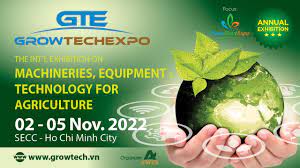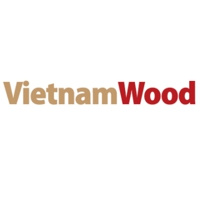- Read all
- Rice
- Fisheries
- Cassava
- Fertilizer & Pesticide
- Coffee
- Animal Feed
- Cocoa
- Seed
- Tea
- Wood
- Pepper
- Agricultural Cooperations
- Cashew
- Agricultural Investments
- Rubber
- Governmental Policies
- Sugarcane
- Agricultural Startup Ecosystem
- Corn
- Technological Innovations
- Spices
- Organic Agriculture
- Bean
- Food Manufacturing
- Fruit & Vegetable
- Agricultural Value Chain
- Flower
- Water & Waste Management
- Meat
- Processed Food
- Dairy
- Plant Originated Products
- General Agro Commodities
- Animal Originated Products
Vietnamese agricultural products conquer the Japanese market
April 8, 2022

The seminar "Conquering Organic JAS standards, the advantage of connecting to the Japanese market" was organized by the BSA Center in collaboration with the School of Agriculture and Rural Development Management II. Photo: Nguyen Thuy.
Say no to chemicals
One of the first Vietnamese enterprises (DN) to conquer the Organic JAS standard "fortunately", said Tran Phong Lan, Chairman of the Board of Directors of Seagull ADC, right from the beginning of farming, the purpose of the company Enterprises want to make clean and delicious products to serve Vietnamese consumers. Enterprises began to meet VietGAP and LocalGAP standards and began to say no to chemicals, not using chemical fertilizers and preparations, but making their own biological products to use as fertilizers for crops. “We practice and train employees to be aware of the dangers of using chemicals in agriculture. And importantly, all of them practice keeping a full diary of the process from sowing seeds to harvesting.
"In terms of consulting for businesses, Ms. Vu Kim Hanh, Chairman of the Vietnam Association of High Quality Products Enterprises, said that when businesses and cooperatives want to step into the world market, the lowest standard must be achieved. is LocalGAP. This is the standard as a stepping stone, a transit step to go from VietGAP, a step into the world market. When achieving LocalGAP, businesses and cooperatives will be evaluated by international organizations, easier than GlobalGAP, but still in the global GlobalGAP system."
When Japanese experts approached our cantaloupe farm in Tay Ninh, they were amazed at the process we carried out. The knowledge we apply is the knowledge that his forefathers have used since ancient times, without using chemicals, plus the knowledge from taking notes, about following the procedures. It was at that time that they helped us get JAS certification, without having to go through any consulting unit in Vietnam,” said Mr. Phong Lan.
According to Mr. Phong Lan, one of the first requirements to achieve JAS organic certification is that the soil must be organic, which means that it must be left untouched for 3 years to remove heavy metals and chemicals... However, Mr. Phong Lan said that , in those 3 years, it is not necessary to leave the land uncultivated, just apply the LocalGAP standard, say no to chemicals, it will still produce well. “We don't stick to JAS labels, but develop a separate label, DennyGreen – an organic-oriented farming product. Thus, we can solve the abandonment of land and abandoned barns in 3 years", said Chairman of the Board of Directors Seagull ADC.
Similarly, Tan Dat Cooperative (Vinh Long province) also had a arduous 10-year journey to conquer organic certification with 65 members, 100 hectares of production land. Mr. Doan Van Tai, Director of Tan Dat Cooperative said, groping to produce products that bring health to the community, bringing a clean green environment, until 2014, Tan Cooperative's organic production model Achieved success until today. Currently, Tan Dat Production and Service Cooperative has achieved 3 certifications in the US, Europe and Japan.
According to Mr. Tai, cooperatives want standard organic production in addition to renovating and removing toxins and heavy metals in soil and water; It is necessary to develop a separate regulation on the common production process for all members, in order to create quality products. At the same time, it is necessary to mobilize the establishment of a sustainable production chain with a consumption market.

Dried banana products with dragon fruit are made from organic farm materials DannyGreen and pea squash of Seagull ADC Company. Photo: Nguyen Thuy.
There is plenty of room for Vietnamese agricultural products to enter the Japanese market
At the seminar "Conquering Organic JAS standards, advantages of connecting to the Japanese market" organized by BSA Center in collaboration with School of Agriculture and Rural Development Management II last weekend, Dr. Tran Minh Hai, Director of Training Center The School of Agriculture and Rural Development Managers II said that Japan is a country with 126 million people with an increasing need to import agricultural, forestry and fishery products.
Currently, Japan imports many pre-processed products from fish, shrimp, eel, meat, eggs, and products from Vietnam's soybeans, grains, and vegetables. By the end of this year, Vietnam's longan will be officially entered the Japanese market and many Vietnamese agricultural products will have the opportunity to enter the Japanese market in the near future. The potential and potential of the Japanese market today is huge. However, Japan is a country that requires extremely difficult quality standards, if the standards and requirements of Japan are met, Vietnamese agricultural products can almost easily go to other markets.
As someone with extensive experience in bringing over 100 preliminarily processed agricultural and seafood products, and confectionery... Vietnam to distribute and consume in the Japanese market, Ms. Yumi Nishida - Tuong My, Director of JSC Yoshimi said that there are about 500,000 Vietnamese living in Japan, this is a big "consumer" of Vietnamese products exported to.
In order for Vietnamese agricultural products to be exported to the Japanese market, in addition to organic farming, Ms. Tuong My noted, businesses need to ensure the correct process at the stage of preliminary processing and processing, so that the product does not contain Ecoli. preservative. “Japanese people like frozen fruits like durian, jackfruit, longan and there is a demand to import many of these items. However, I am concerned that these items are often entangled with preservatives and E.coli bacteria, so I do not dare to export much. In particular, Japan has a great demand for canned vegetables such as vegetables to serve hospitals and nursing homes, "said Ms. Tuong My.
According to Ms. Ino Mayu, coordinator of the "Seed to Table" program, based on the advantages of Vietnam's nature, geography and climate, it is possible to produce a variety of agricultural products. Currently, Japan mainly imports processed agricultural products from Vietnam, fresh agricultural products are still very modest.
To meet Japan's JAS standards is not too difficult, Vietnamese farmers just need to focus on doing methodically and persistently following a synchronous process. “I would like to see how Vietnamese people can produce organic agricultural products, try to set high goals for both environmental protection and meet the needs of the world's common market.
In particular, you should focus on improving processing and post-harvest preservation technology to add value to Vietnamese fresh agricultural products. After the Covid-19 pandemic, Japanese people are tending to buy processed nuts and fruit juices. In addition, they also like canned fruit, frozen fruit of Vietnam," said Mrs. Ino Mayu.
“The road to organic farming is not easy, but if we come from the heart, want to do organic, want to do clean, and persevere with it, we will succeed,” said Mr. Tran Phong Lan, owner. Chairman of the Board of Directors Seagull ADC said.
Source: Nguyen Thuy - Nong nghiep Viet Nam
Related news
-
Vietnamese rice is on the shelves of French E.Leclerc supermarket for the first time
On September 2, Vietnamese rice grains appeared for the first time at France's leading retail supermarket chain.September 6, 2022 -
ASEAN cooperates on digitalization in aid of rural development
In rural regions, digitalization and technological innovation present both benefits and obstacles.September 5, 2022 -
Bac Giang lychee is qualified to export to all markets
Through the results at Eurofins Testing Center, 821 indicators of pesticide residues of Bac Giang lychee were satisfactory.November 4, 2022 -
World wheat prices soar, India seizes export opportunities
India completed deals to export half a million tonnes of wheat in recent days and is expected to sign more contracts to take advantage of record-high global prices.November 22, 2022 -
China strongly attracts Vietnamese pangasius products
Despite the difficulties caused by the "Zero Covid" policy of the Chinese Government, pangasius exports to this market still increased very strongly this year.November 14, 2022
Events See more

Vietnamplas 2022 - Vietnam International Plastic and Rubber Industry Exhibition
23-03-2023 - 26-11-2022 09:00 - 17:00
Saigon Exhibition and Convention Center (SECC) – 799 Nguyen Van Linh Boulevard, District 7, City. Ho Chi Minh.

GROWTECH EXPO - FLORAPLANTEXPO 2021
02 - 05-11-2022 09:00 - 17:00
Saigon Exhibition and Convention Center (SECC) – 799 Nguyen Van Linh Boulevard, District 7, City. Ho Chi Minh.

VTG 2022
18 - 25-10-2022 09:00 - 17:00
Saigon Exhibition and Convention Center (SECC) – 799 Nguyen Van Linh Boulevard, District 7, City. Ho Chi Minh.

VIETSTOCK 2022 - SPECIALISED EXHIBITION OF LIVESTOCK, FEED AND MEAT PROCESSING IN VIETNAM
12 - 14-10-2022 08:00 - 17:00
799 Nguyen Van Linh, Tan Phu Ward, Dist. 7, Hochiminh City, Vietnam

VTG 2022
21 - 27-09-2022 09:00 - 17:00
Saigon Exhibition and Convention Center (SECC) – 799 Nguyen Van Linh Boulevard, District 7, City. Ho Chi Minh.
.png)
VIETFISH 2022
22 - 26-08-2022 09:00 - 17:00
Saigon Exhibition and Convention Center (SECC) – 799 Nguyen Van Linh Boulevard, District 7, City. Ho Chi Minh.
Business Opportunities See more
-
BURANI INTERFOOD is looking for Buyers in Vietnam
Type:
November 22, 2021
-
BURANI INTERFOOD is looking for Buyers in Vietnam
Type: Wholesaling Meat
November 22, 2021
-
BURANI INTERFOOD is looking for Buyers in Vietnam
Type: Wholesaling Meat
November 22, 2021
-
BURANI INTERFOOD is looking for Buyers in Vietnam
Type: Wholesaling Meat
November 19, 2021
-
BURANI INTERFOOD is looking for Buyers in Vietnam
Type:
November 19, 2021
-
Indian purchaser looking for high quality cashew nut kernel from Vietnam
Type: Exporting Cashew
Mar 14, 2016
534
Limitless database of qualified and verified agricultural partners
124
Exclusive buy & sell leads on specific agricultural commodities
24
Agricultural events in Vietnam and Asia Pacific region
Stay informed!
Enter your email address below to receive updates each time we publishes new content
